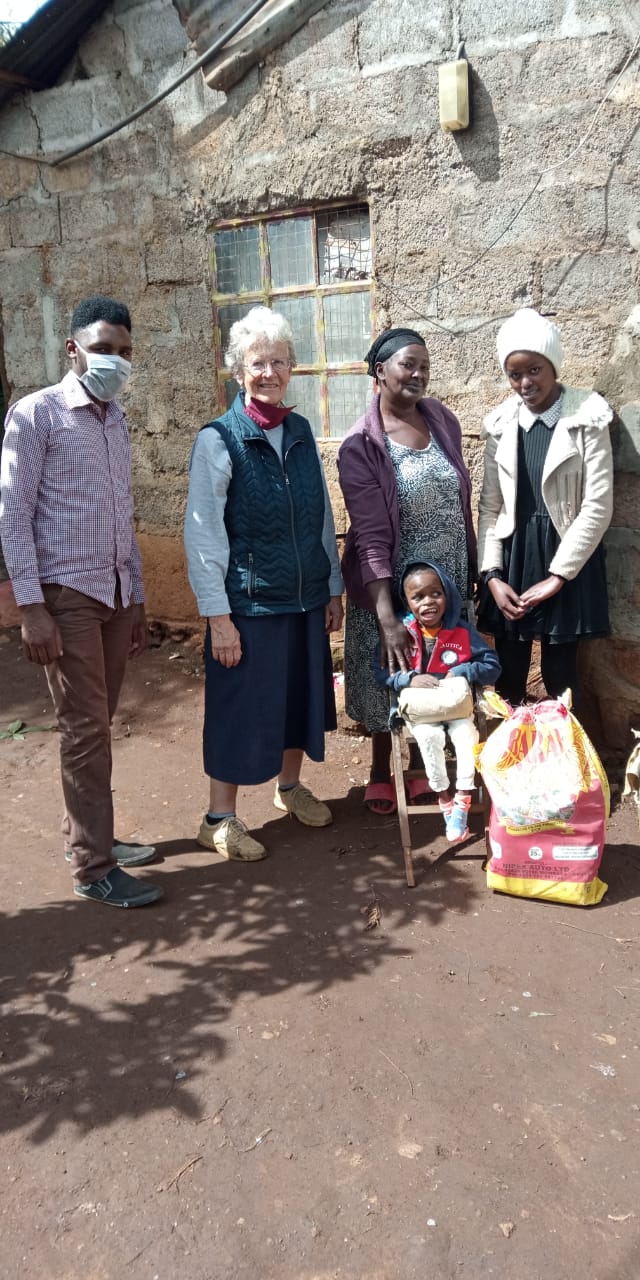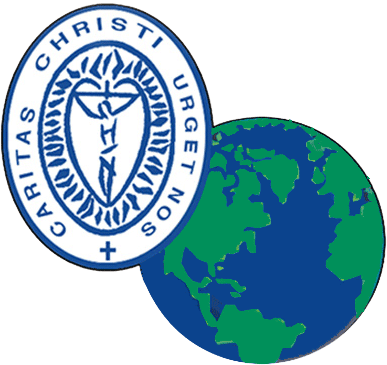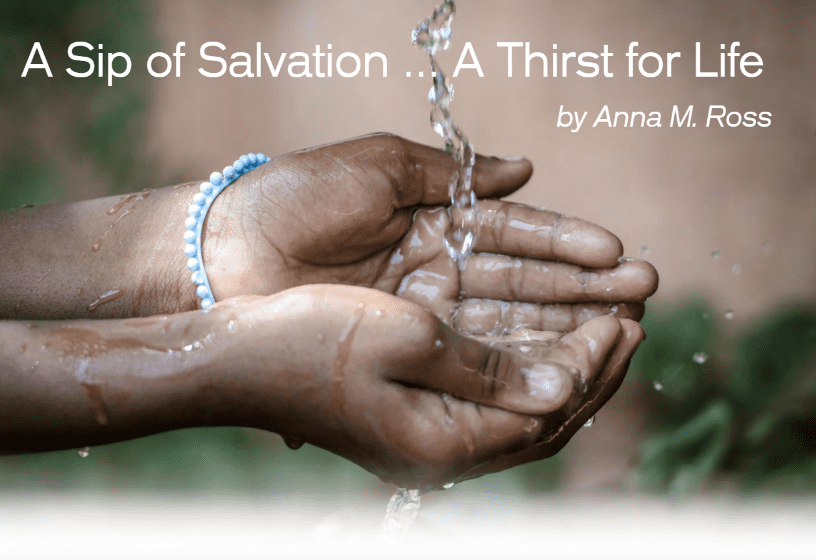Special Recurring Projects
DREAM
DREAM’s innovative approach to treatment and practical solutions have led to dramatically reduced transmission rates as well as improved health for participants. In sub-Saharan Africa, HIV/AIDS and leprosy remain large health concerns for the population. The absence of healthcare, inadequate health education, and widespread poverty combine to create seemingly insurmountable obstacles to treatment.
In the eight DREAM centers across six countries, our Sisters coordinate services that provide all the components of care needed to reduce the effects of disease and allow people to live healthier lives. The establishment of these centers over the past 20 years created enormous impacts on the health of those living in poverty. For example, in Nigeria, 45% of infants born to women with AIDS are either born with or acquire the infection, while mother to child transmission in the DREAM programs has been reduced to less than 1%--preventing the disease in these infants.
With the help of government assistance for some medications, DREAM Centers provide a comprehensive treatment plan including nutrition, outreach, and medication management services. This approach provides maximum results with minimal cost and tailors treatment to the needs of each patient and community.
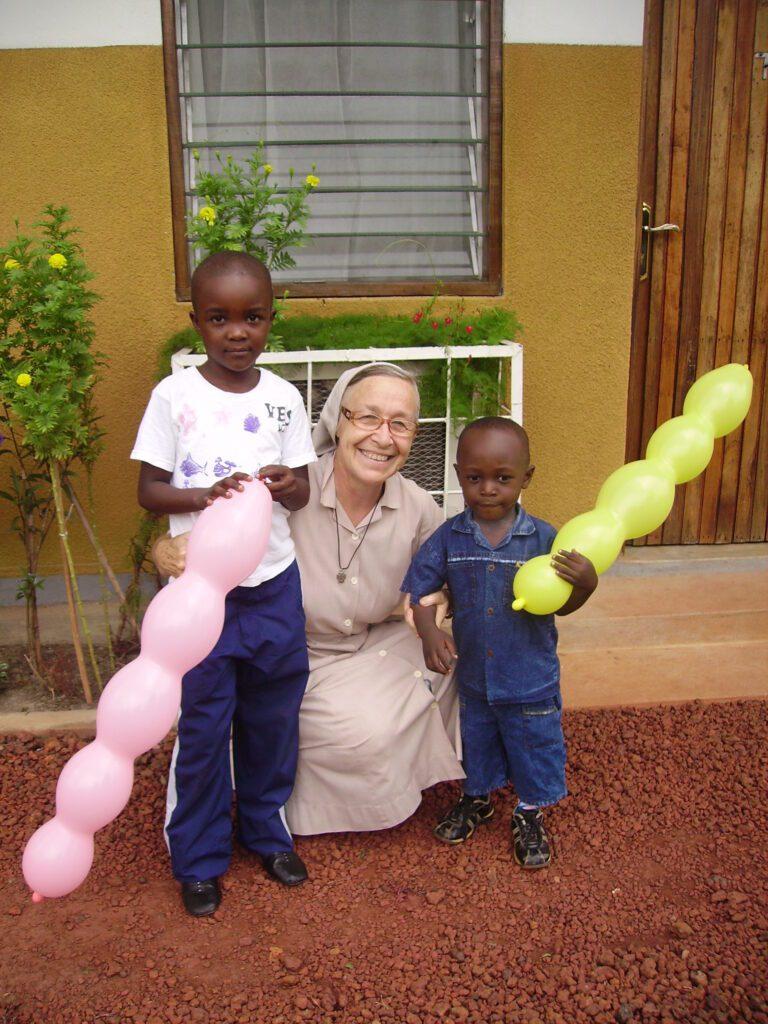
Family Services

Daughters of Charity are dedicated to serving the poor and needy in communities around the world and a significant part of their ministry is centered on providing critical services to families in need. Families are the building blocks of a strong society, but in places where there is poverty, corruption, or inequality, families often struggle with acquiring basic necessities and accessing services like healthcare and education.
Daughters get to know the families in their community and when they see what kinds of needs there are, they work hard to meet those needs. From offering speech, physical, or occupational therapy to children with disabilities, to providing education and nutrition to school-aged children who cannot read and are malnourished, to delivering groceries for families who simply cannot afford enough food, Daughters play a critical role in helping families where they need help most.
While Daughters offer healthcare, education, nutrition, and basic necessities to numerous families, their support does not stop there. Daughters don’t just meet physical needs; they support families with psychological and spiritual care. They offer encouragement and hope. Their services are comprehensive, compassionate, and tailored to each family’s needs.
Combating Human Trafficking
Victims of gender-based violence (GBV), abuse, or human trafficking depend on the services Sisters provide in communities across the globe. Survivors have endured forced labor, sexual exploitation, and various forms of compounded abuse from this modern-day form of slavery. Victims are frequently targeted due to poverty, lack of education, limited community support and opportunities, and marginalization. Survivors of these traumatic experiences benefit most from a holistic approach to recovery. Wrap-around services are crucial to help them rebuild their lives and regain a sense of autonomy and dignity.
While trafficking and abuse are global issues, Sisters remain focused on the specific needs of their local communities. The services offered are tailored to the needs of each community and are sensitive to the local cultural context. This customized support provides both recovery and growth, ensuring that survivors receive the care they need to heal and the tools they need to thrive. Sisters’ comprehensive approach to combatting GBV, abuse, and trafficking is making a significant impact on the lives of survivors. By addressing immediate needs and fostering long-term empowerment, Sisters help those most in need to reclaim their rights and rebuild their lives with dignity and hope.
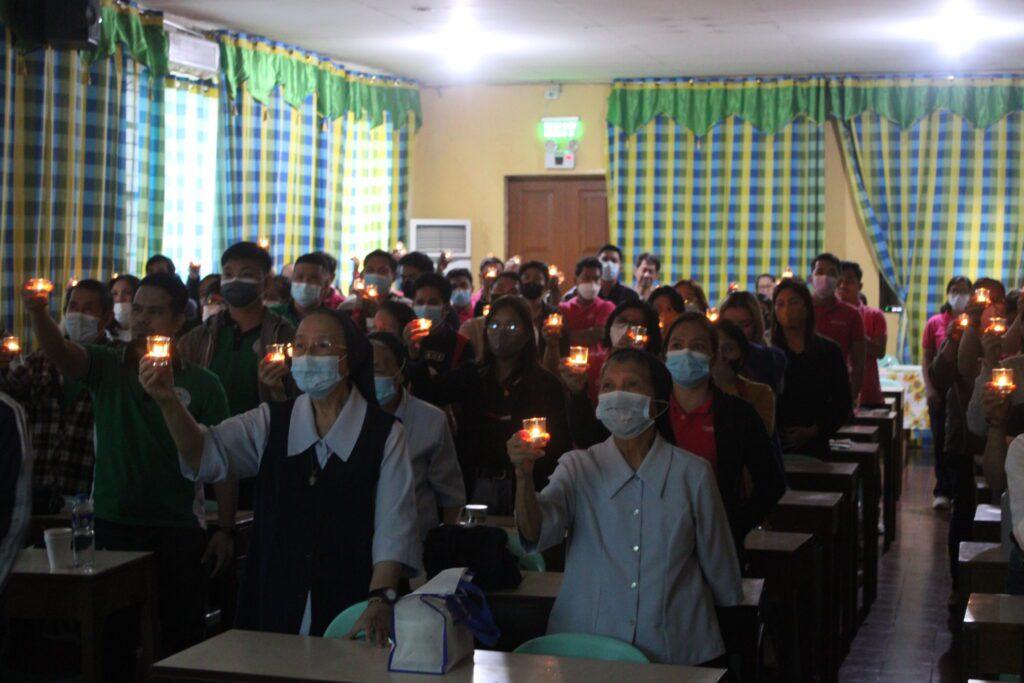
Structures
Sustainable humanitarian work requires practical, reliable infrastructure. For Daughters of Charity, this means creating stable foundations that enable their ministries to serve vulnerable communities.
These stable infrastructures transform a ministry's potential. Community centers, healthcare clinics, and educational spaces become lifelines when they provide safe, dignified environments for critical services. Without reliable buildings and facilities, the Sisters cannot offer consistent healthcare, education, or community support.
Infrastructure transforms good intentions into meaningful action, allowing Daughters of Charity to create sustainable, responsive ministries that address the complex challenges facing vulnerable communities. Sturdy infrastructure represents resilience, hope, and the ability to create sustainable spaces where communities can heal, learn, and grow. It is the physical embodiment of the Sisters' mission.
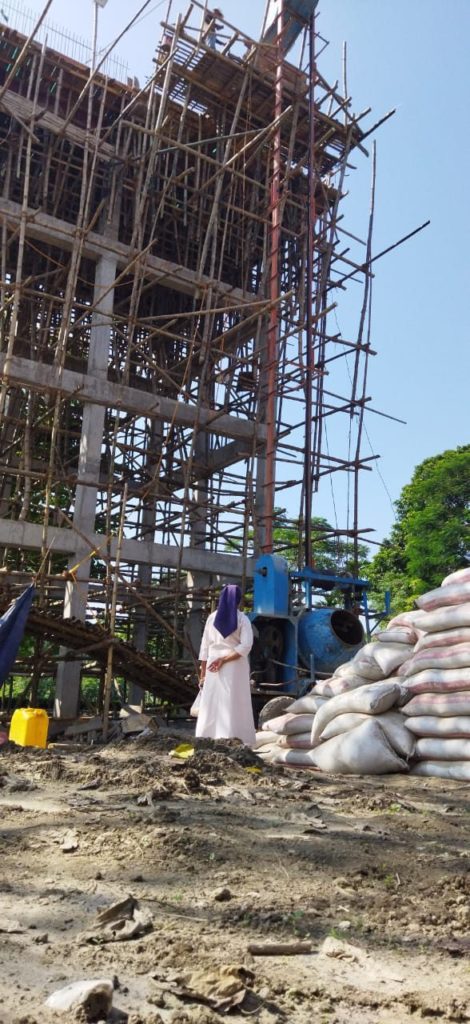
Vehicles
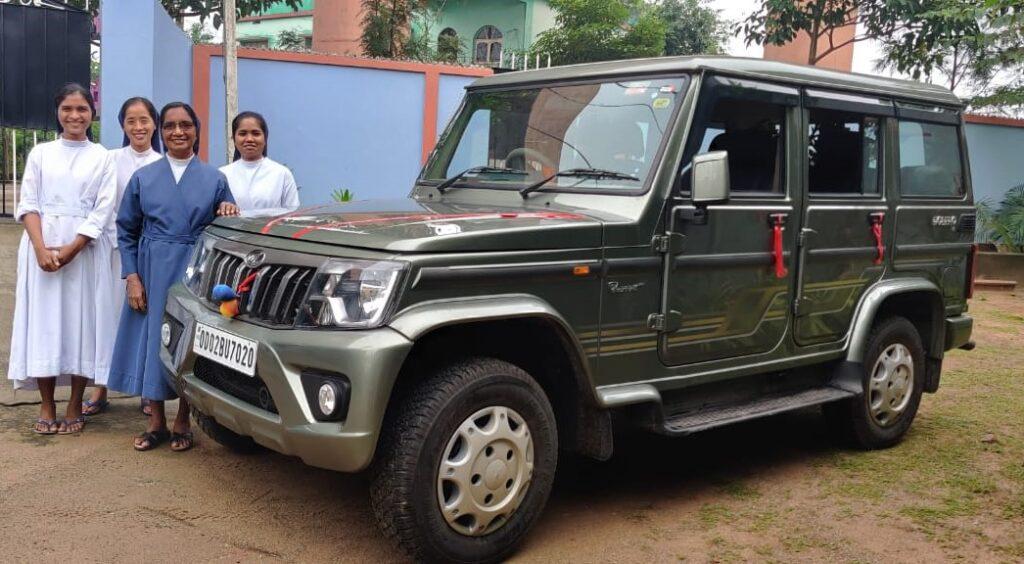
Daughters of Charity provide vital outreach services such as healthcare, education, and food distribution, sometimes traveling long distances to reach remote or underserved areas. A vehicle is not merely a convenience but an essential tool that enables them to respond quickly to emergencies, transport supplies, and connect with those in need who are otherwise inaccessible. Without a reliable vehicle, their ability to serve is severely hindered, limiting their impact and leaving vulnerable populations without critical support. Providing a vehicle allows these Sisters to continue bringing hope and care to the most marginalized members of their communities.
WAter, Sanitation and Hygiene (WASH)
In water-scarce regions, the consequences of contaminated water are devastating. Infants contract life-threatening infections, children are forced to drink from sources contaminated by human waste, and healthcare facilities struggle to maintain basic sanitary conditions. These are not abstract statistics, but daily realities for communities lacking reliable water infrastructure.
DC IPS addresses these challenges through targeted, practical interventions. Working directly with local communities, Sisters develop sustainable water systems for hospitals, clinics, and schools. The goal extends beyond installing water infrastructure, it's about empowering communities to break free from the struggle for survival and create pathways to health, education, and economic opportunity.
The Sisters cannot solve this global challenge alone. Their work depends on partnerships and support from individuals and organizations committed to transforming lives through clean water. Every contribution helps construct a future where access to safe water is not a privilege, but a universal right.
Special Feature:
DC IPS has coordinated with Water Engineers for the Americas and Africa (WEFTA) on many WASH projects. WEFTA is a US-based nonprofit which connects with local engineers to provide hydro and geologic assessments of project documents, site conditions, as well as construction oversight activities. This collaboration serves as a safety net for DC IPS and ensures that WASH projects are well situated, well-constructed, and sustainable.
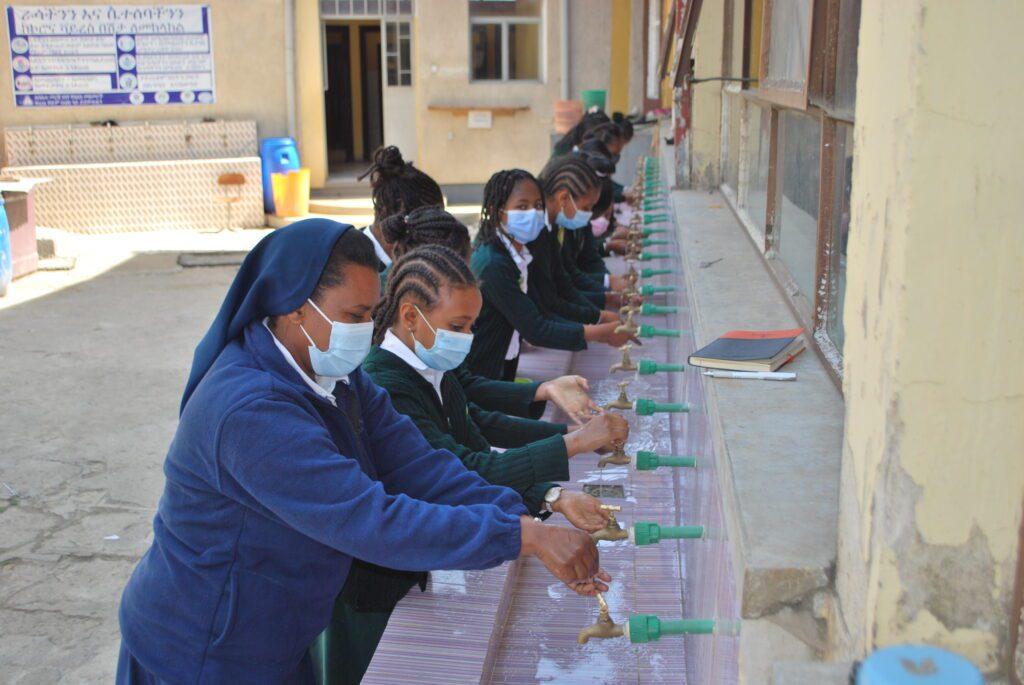
Special Focus
Social Welfare Home Roof - Poland $172,000

The project to repair the roof of the Social Welfare Home in Chelmno is a crucial next step for the vulnerable individuals residing there. Located in a historic building with origins dating back to the 12th century, the Chelmno Social Welfare Home has long been a sanctuary for children, teenagers, and adults with intellectual disabilities, as well as adults who are chronically ill. The building, which was originally established in 1919 as an orphanage and later converted into a social welfare home, currently houses 143 residents, some of whom rely on round-the-clock care provided by both Sisters and dedicated lay staff.
The Social Welfare Home serves a critical role in the community of Chelmno. Many of the individuals living here have no other place to go, making this home their lifelong refuge. The residents of the home face significant challenges, including the lack of family support for many, and severe physical and intellectual disabilities that require constant attention.
Repairing the roof of this building is not just about preserving a historic structure but about ensuring the well-being and dignity of the residents who call it home. It is a critical step toward providing them with a secure, warm, and functional environment, where their physical needs are met, and where they can continue to live with love and care. This project is an investment in the lives of some of the most vulnerable members of this community, whose ongoing safety and well-being depend on the completion of this project.
2025 Annual Report
The best way to understand the Daughters of Charity organization is to share in the experiences of the Sisters living and working in the developing world. United as Daughters of Charity, they dedicate their lives in service to those who are poor. Stories, videos, biographies and more, will offer a glimpse into the world of the local people and the Sisters, and the struggles and richness of their collaborative work.
Click the picture below to check out DC IPS’ latest feature in Faith Afire magazine:
Vatican's Water Initiative in Health Care Facilities
Vatican’s water and hygiene initiative for health care facilities is an investment in life. The lack of water, sanitation and hygiene in health care facilities worldwide kills infants, women and front-line workers.
Helping Our Neighbors in Thigio, Kenya
Doing What We Can, Where We Can
This time of Covid-19 has been a challenge for the world. In Thigio, we have not experienced positive cases yet, but we are taking precautions just as if there were cases near us.
Our school programs have closed and will most likely remain closed until January. Still, our social worker and teachers have maintained phone contact with the families of our clients with disabilities. We check in to make sure everyone is okay and safe. Sadly, one of our children with severe disabilities passed away last month. Sister Pat, the manager for the education program, attended the funeral with some of the teachers. They wore masks and kept their distance, but the family knew they were there.
Some of our teachers help with the gardens attached to our adult education centers. They volunteer their time cutting the grass, weeding, and harvesting any produce. We share what we can with our clients and their families. The teachers also help clean the classrooms so that we will be ready to open again. Of course, they wear masks, sanitize their hands, and keep their distance.
Our Lady’s Hospice remains open. New patients from the hospital must complete a Covid-19 test. Those coming from home are admitted to a private room where they are observed for symptoms. Each patient can have one designated visitor who must be symptom free, wash their hands, and wear a mask when visiting. Visitors are also screened for fevers. Patients are encouraged to keep in touch with other family members by phone.
Holy Cross Clinic has remained open. Patients are screened before entering the clinic. Patients and staff wear masks and cleanse their hands even more often. Screening for gender-based violence is also particularly important as this is a now major concern. Persons living with HIV who attend the clinic have continued to receive food support every two weeks.
Most people have managed to find food since we are a farming community. Still, some of our neighbors have requested food support. One person in need of food was Martin (name changed for privacy), a man with Cerebral Palsy. Martin had his own small business selling liquid soap that unfortunately closed when his funds were depleted. He was very happy to receive food that will get him through the next few weeks.
Because the Women’s Development program usually takes place in a very small place, many activities have been postponed. Some of the women made masks from home during the early days of Covid-19 before masks were readily available, which helped them to earn capital and work on other projects from home. The sewing shop run by some of the women remains open and continues to make a small profit. Sister Elizabeth continues to provide mentoring and advice for the women.
What must be done? Our answer in Thigio is we do the little we can, where we can, for whom we can, and Trust that God will do the rest. We thank those who help us to reach our neighbors in time of need and thank all who are doing the same around the world, especially our health care personnel and emergency responders.
Written by: Sister Deborah, Daughter of Charity – Thigio, Kenya
